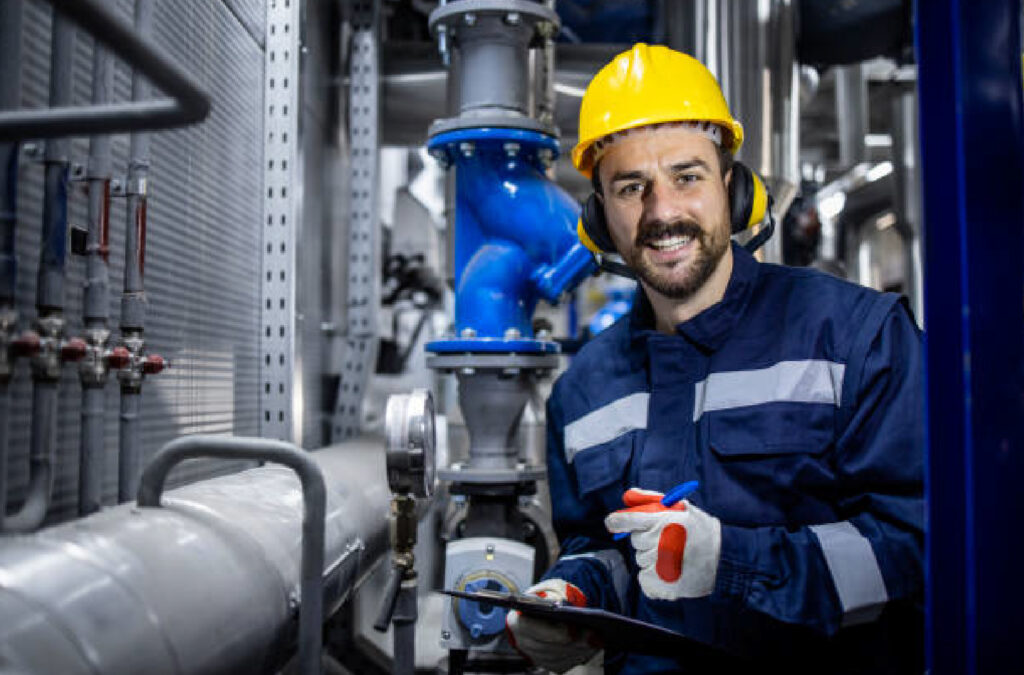AI and Machine Learning: The New Frontier for Oil & Gas Innovation

The oil and gas industry is at a pivotal moment, driven by the need to boost efficiency, reduce operational risks, and meet environmental demands. Emerging technologies like Artificial Intelligence (AI) and Machine Learning (ML) are playing a transformative role in revolutionizing this sector. As companies race to integrate digital technologies into their operations, AI and ML have emerged as the cornerstone of innovation, unlocking new potential across exploration, production, maintenance, and sustainability.
In this blog, we’ll explore how AI and ML are reshaping the future of the oil and gas industry and why embracing these technologies is crucial for staying ahead in a competitive market.
The Increasing Role of AI in Oil and Gas
AI is quickly becoming indispensable in the oil and gas sector. The ability to analyze and process vast amounts of data in real time has opened up new opportunities for operational efficiency and strategic decision-making. AI's predictive capabilities are particularly valuable in this data-heavy industry, where downtime, equipment failure, and inaccurate predictions can result in costly delays.
For example, AI-driven models can predict equipment breakdowns and recommend maintenance schedules, allowing companies to address potential issues before they cause disruptions. This predictive maintenance is helping companies significantly reduce downtime and maintenance costs, leading to smoother and more efficient operations. Additionally, AI-powered tools enable better exploration of new oil reserves by analyzing geological data, reducing the risk of drilling in unproductive areas.
Machine Learning: Turning Data into Competitive Advantage
While AI focuses on automating decision-making processes, Machine Learning (ML) goes a step further by using algorithms that allow systems to learn from historical data and improve their accuracy over time. This makes ML particularly valuable for optimizing long-term operational strategies in oil and gas.
ML is being applied to optimize production workflows and manage complex processes. For example, ML algorithms can analyze data from drilling operations to improve well performance and predict changes in reservoir behavior. By leveraging historical production data, ML models can guide decisions that increase production efficiency, minimize environmental impact, and lower costs.
Beyond production optimization, ML is also revolutionizing supply chain management. By analyzing logistics data, ML algorithms can streamline supply chains, ensuring that materials and equipment are in the right place at the right time. This reduces delays and enhances productivity, helping companies meet their targets faster and more efficiently.
Enhancing Safety and Reducing Risks with AI and ML
The oil and gas industry faces inherent risks, both in terms of operational hazards and environmental impact. AI and ML are proving to be valuable tools in enhancing safety protocols and reducing risks.
AI systems can monitor real-time data from sensors across oil rigs, pipelines, and refineries, detecting anomalies or potential safety hazards such as gas leaks or equipment malfunctions. These systems can automatically alert operators to dangerous conditions and even trigger emergency shutdowns, ensuring the safety of workers and preventing disasters. Machine learning algorithms, on the other hand, analyze historical data to identify patterns that may have led to accidents in the past. By understanding these patterns, companies can take proactive steps to mitigate risks before they lead to significant incidents. This level of automation and analysis helps oil and gas companies operate more safely and reliably.
AI and ML: Fueling Sustainability Efforts
One of the most significant challenges facing the oil and gas industry is the need to operate more sustainably. Environmental regulations are tightening, and both stakeholders and customers are demanding greater transparency and reduced carbon footprints. AI and ML are pivotal in helping companies meet these sustainability goals.
AI can optimize energy consumption by monitoring resource usage and identifying areas where waste can be reduced. This leads to significant energy savings and lower emissions. Similarly, machine learning models can predict emissions levels and suggest process adjustments to lower environmental impact. By optimizing drilling processes and equipment usage, companies can also reduce their reliance on non-renewable resources and minimize their ecological footprint.
The ability of AI and ML to track and analyze environmental data also helps companies comply with regulations more effectively, ensuring that they meet or exceed environmental standards.
The Future of AI and ML in Oil and Gas Innovation
The potential of AI and ML in the oil and gas sector is vast and growing. As these technologies continue to evolve, they will further enable automation, improve decision-making, and create new efficiencies across the industry. Companies that embrace AI and ML today will not only benefit from immediate operational gains but also position themselves as leaders in the future of the energy sector.
In the future, AI and ML will likely integrate with other technologies like blockchain and edge computing, providing even more real-time insights and streamlined operations. As the oil and gas industry becomes more digitalized, these technologies will help companies achieve long-term sustainability and profitability.
AI and Machine Learning are revolutionizing the oil and gas industry by enabling companies to operate more efficiently, reduce risks, and meet environmental challenges head-on. The competitive advantage offered by these technologies is undeniable, and businesses that invest in AI and ML today will be well-positioned for future growth.
By leveraging AI and ML, oil and gas companies can harness the power of data to drive innovation, reduce costs, and build a more sustainable and profitable future.